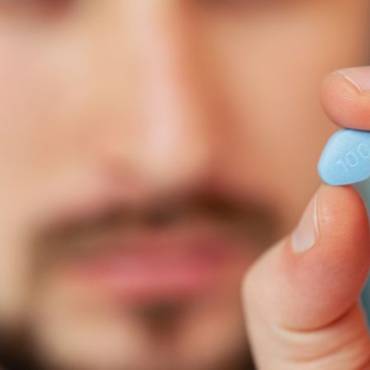Premature ejaculation (PE) is the most common male sexual disorder, affecting the male population, irrespective of age, marital status, or ethnicity. This sexual dysfunction is likely underreported and under-treated because of the affected person’s shame and low self-esteem. This is an addition to many health care experts feeling uncomfortable or uncertain about managing premature ejaculation. PE may have a profound negative impact on a man and his partner’s lives. Men with PE often experience significant psychological, avoid physical and emotional intimacy, and become victims of false medical advertisements and unproven medical management. This article aims to provide general information about PE so patients can manage the condition and other associated sexual dysfunction, including erectile dysfunction.
What Is Premature Ejaculation, and What Time Frame Medically Defines a Man’s Ejaculation as Premature?
What is premature ejaculation? PE occurs when a man cannot control the timing of ejaculation and ejaculates before he and his partner feel ready for this to happen. This may cause distress in both the man and his partner.
The definition of PE varies, according to what the American Urological Association defines ejaculation as premature if it occurs sooner than desired, either before or shortly after penetration, leading to a stressful situation between the partners. Many experts define prematurity as ejaculation within a minute of beginning intercourse. Despite professional opinions, your feelings and what is premature are also considered.
What are the Causes of PE?
What causes premature ejaculation? What is the cause of the quick release of sperm? The exact cause of pre-ejaculation is unknown, but there are numerous reasons a man may have PE. There may be physical or emotional reasons. Some specific causes for pre-ejaculation are explained below:
Serotonin
Serotonin is a chemical produced naturally in the body. It helps control mood, sleep, emotion, and sexual desire. Too much of this chemical in the brain increases the time of ejaculation, whereas low levels can shorten the time to ejaculation and contribute to PE.
Psychological Issues
Psychological health issues can be involved with PE and may include:
- Stress
- Depression
- Lack of confidence
- Guilt
- Relationship problems
- History of sexual repressions
- Unrealistic expectations about sex
Taking care of emotional thoughts often helps.
Other issues
PE associated with Age
PE can occur at any age. Ageing is not a direct cause of PE, though ageing does cause a change in erections and ejaculation. For some older adults, erections may not be as firm or as large. Erection may not last as long as before ejaculation happens. Such changes can lead to some older adults ejaculating earlier.
PE and your Partner
PE may make you feel less connected with your sexual partner. You might feel angry, ashamed, or upset and turn away from your sexual partner. PE may not only affect you, but it may also affect your partner as well.
Management of Premature ejaculation
How to treat erectile dysfunction and premature ejaculation
Treatment for premature ejaculation? Ideally, discussions about managing the condition should involve the patient and his regular sexual partner. Treatment options require consideration of symptoms severity, causes, psychological impact, side effects, and patient preferences.
In clinical practice, management is complex and requires a combination of pharmacological, psychological, and behavioural treatments. Most causes of erectile dysfunction and premature ejaculation are treatable with behavioural or counselling that helps with emotional concerns, performance anxiety, or stressors contributing to the sexual condition.
Management Options
Behavioural therapy – It involves techniques to delay your orgasm. These include:
- Start and stop – Repeat the start and stop approach three or four times before orgasm. Continue practising this method until you have achieved adequate control.
- Squeeze therapy – With this, you and your partner will be able to stimulate your penis close to the point of orgasm, then gently squeezes the head of your penis for about thirty seconds so that you begin to lose your erection. Repeat this a few times before allowing yourself to orgasm.
- Distracted thinking – The idea is to focus on nonsexual things while you are being sexually stimulated.
Counselling – If the cause is psychological, emotional, or relationship issues due to stress, performance anxiety, guilt, or a troubled relationship. Seek the help of a psychologist.
Medical Management
Several types of medicines can be tried. Medicines including selective reuptake inhibitors like paroxetine, citalopram, fluoxetine, sertraline, and escitalopram can help delay premature ejaculation. Moreover, anaesthetic creams and sprays applied to the head and shaft of the penis are another treatment option to delay ejaculation.
There may be several other treatment methods; by involving your partner and seeing the appropriate health care expert, you will likely be able to control your ejaculation.
Erectile dysfunction medicines, which include sildenafil, tadalafil, and vardenafil, have also been used to treat PE, particularly in men with underlying erectile dysfunction.
Read About The FAQS of ED Pills
Conclusion
PE is the inability to control or delay ejaculation, which can cause dissatisfaction or distress for the patient. It is a highly prevalent male sexual dysfunction often neglected, presenting a currently unmet therapeutic need. Patient assessment and management options differ depending on the classification of premature ejaculation, and it is the role of patients. Patients with lifelong and acquired premature ejaculation are most likely to benefit from a combination therapy of pharmacological treatment in the form of selective serotonin reuptake inhibitors dapoxetine, psychosexual therapy, and psychological therapy.



